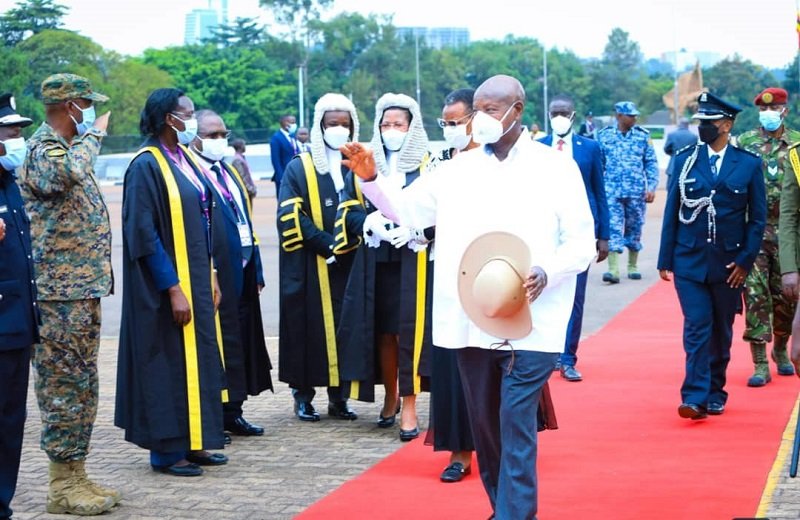President Museveni has commended the good working relationship between Parliament and the Executive, which he said has contributed to the country’s stability and progress.
The President, who was delivering the State-of-the Nation Address to Parliament, praised the Speaker, Anita Annet Among and her team for their support in passing critical bills since the previous address, ensuring a smooth legislative process.
The State of the Nations Address, which marked the start of the Fourth Session of the 11th Parliament, was held at Kololo Independence grounds on Thursday, 6 June 2024.
Parliament, during the session that ended in May this year passed a total of 47 bills in 87 sittings. Some of the key bills were those that rationalised several government agencies.
President Museveni acknowledged that the past challenges where some actors attempted to undermine the Ugandan revolution through Parliament, which he noted as provocative but managed peacefully
“I want to salute the Speaker, the Deputy Speaker [Thomas Tayebwa], and the National Resistance Movement (NRM) MPs. In the past, there was a risky and shallow tendency by some actors that would try to use Parliament to undermine the Ugandan Revolution, which is part of the African Revolution,” he said, adding that “This, of course, was a miscalculation that was provocative but we managed to handle it peacefully. Rt. Hon. Speaker and your team, I congratulate you for working harmoniously with the Executive.”
“I am told some of the foreigners are saying that the Speaker Anita Among, because she does not undermine, she is not a good Speaker because she should be sabotaging government. Very risky miscalculation,” he said.
The President also commended the Judiciary for its role together with Parliament in synthesising a rational and transparent budget for the country, further emphasising the collective effort in governance.
He expressed his hope for a fruitful session ahead, reaffirming his commitment to the continued progress and development of Uganda.
Museveni Calls for Regional Integration and Oneness in Africa
President Museveni emphasised the importance of regional integration and unity for Africa’s strategic security and prosperity.
Drawing on historical precedents and the vision of Pan-Africanism, Museveni outlined the benefits and challenges of achieving a more integrated African continent. He highlighted the economic and strategic advantages of regional integration.
“With a more united African market, we can negotiate with other countries for market access – European Union, United States of America, China, Russia, the Gulf, India, etc.,” he said, underscoring the potential for enhanced economic power on the global stage.
He further elaborated on the strategic security benefits, pointing out that a united East African Federation would have the capability to defend its interests across land, air, sea, and space.
“This East African Federation, with one army, a common citizenship, in addition to the wider common market already talked about in this speech, will provide perpetual insurance for the freedom of the black race and other freedom-loving people in the world,” Museveni said.
He also revealed that Uganda is working on implementing a limited space programme for overhead observation and communication (broadcasting and telephone communication) as part of development.
Despite the clear benefits, Museveni acknowledged several obstacles to achieving full integration. He mentioned persistent trade barriers within the East African Community (EAC) as significant hindrances to prosperity.
“These are really roadblocks to our prosperity. All the East Africans should work to remove these bottlenecks by implementing fully the common market protocols, the Customs Union protocols, so that the fragmented markets of Africa become one market,” he said.
Additionally, the president referred to historical missed opportunities that have led to regional instability. He reflected on the failed attempt to achieve East African federation in 1963, which could have prevented various regional conflicts and tragedies.
“All the subsequent calamities that befell this part of Africa would never have happened if we had achieved that goal at that time,” he lamented, pointing to events like the Idi Amin regime in Uganda and the Rwandan genocide as preventable tragedies under a united regional government
The President called on the citizens of East Africa and the broader African continent to embrace integration as a means to secure a prosperous and secure future. He emphasised that regional integration should be pursued not only for economic benefits but also to ensure strategic security.


